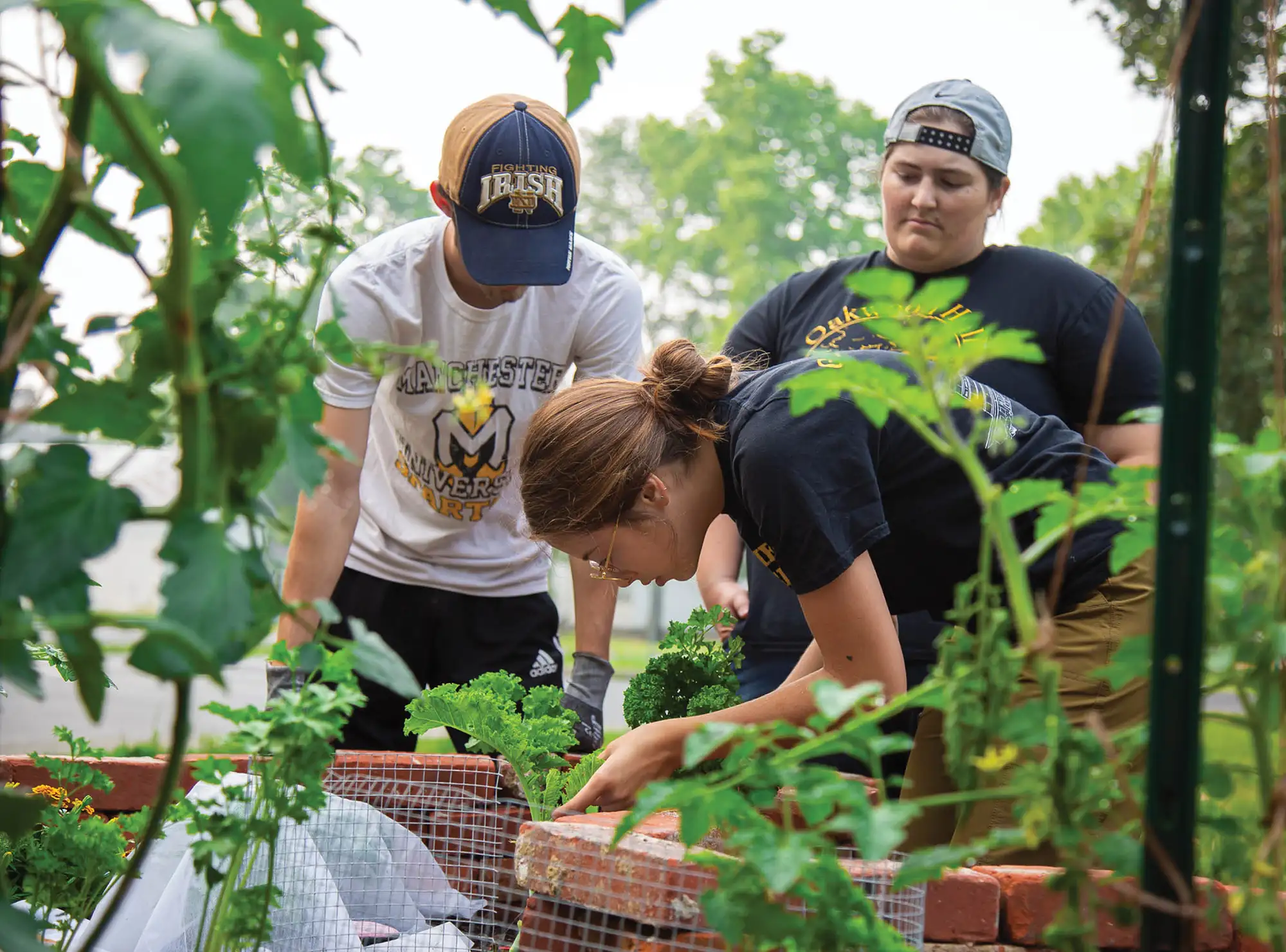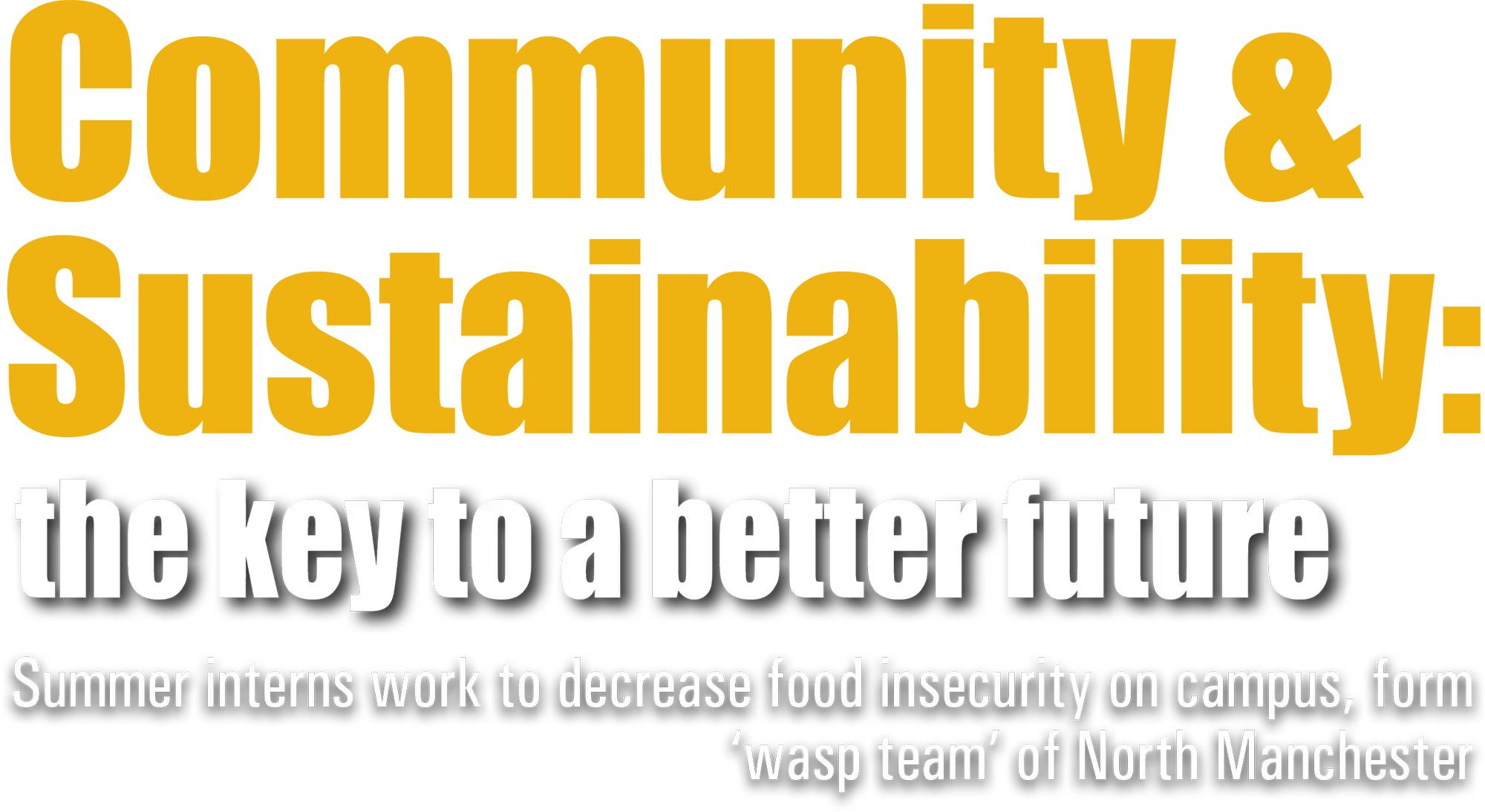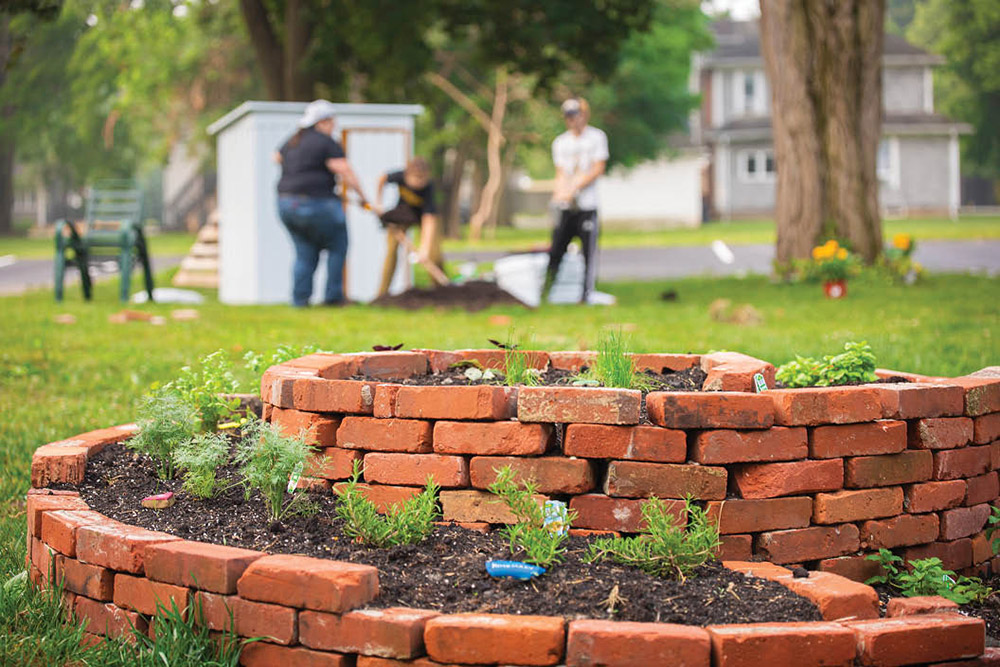

anchester is finding inventive new ways to increase sustainability on campus. Students from the environmental studies and peace studies programs completed on-campus internships this past summer, building and maintaining several new gardens, including a keyhole garden, and doing work in the North Manchester community.
Interns Kora Beasley, Colleen Caylor and Andrew Kreps are all juniors at Manchester, and all are actively involved in both academic programs. They dedicated their summer breaks to supporting efforts to make campus and the wider community a healthier, more sustainable and accessible place to live and work.
“As things shifted and changed, I really started to view it more as becoming part of a community, being ready and accepting of doing a lot of networking and community service,” Caylor said.
Beasley did preliminary work on the gardens through a conservation biology course and conversations with former Manchester professors Kristen Short and Suzanne Beyeler.
Kreps was a tutor for a class with Beyeler, and the final project was based on matters of food insecurity. Conversations of creating an on-campus garden started in the fall of 2022, and Kreps was eager to do something garden-related.
By the summer of 2023, all three students were committed to making a difference on campus.
Located across from Oak Grove, where the Administration Building formerly stood, the gardens include six raised beds and the keyhole garden made from Ad Building bricks.
All the produce from the campus gardens is free for students to pick.
“I think that was a really exciting thing to do first because we were using this piece of Manchester history and creating something that will hopefully be an important part of Manchester’s future,” Caylor said. “It’s also been a really good way to connect with people as they walk by. You can tell that the bricks aren’t brand new, and a lot of people have been excited to hear that we’ve used the bricks in that way.”
The three even signed the bricks and the inside of the garden shed, which they also built themselves.
“I was in the class that Andrew tutored for, and one thing that we explored was looking at the different demographics at Manchester to see who is more likely to be at risk of being food insecure, and how Manchester can take the approach to make sure that all students are equally cared for and that all students have access to fresh produce,” Beasley said. “We’re basically in a food desert here; if you don’t have a car, it’s pretty difficult to get to the grocery store. With the teaching garden, it’s a perfect opportunity for community members and students to get involved.”
The goal is to encourage students to help tend to the garden and create a true sense of connection to the garden, to campus and to the North Manchester community.
In addition to their work on campus, the interns also formed what is now called the “Wasp Team” of North Manchester.
Earlier this spring, the Peace House, where the peace studies coordinator lives, became infested with bees. This led to Gray Brown contacting James Elliot from Green Wasp Removal, a company that provides environmentally responsible removal of wasps, hornets, yellowjackets and bees. Elliott had the team do surveying in the North Manchester community, going door-to-door asking to look around the outside of people’s houses for wasps. If people were willing to keep the nests of native wasps up, the team would continue to monitor them. In some cases, they had to remove the nests. The project was, in Kreps’ words, “a huge undertaking.”
“Doing the surveying is so necessary in learning how to interact with community members,” Kreps said. “Environmental studies is such a technical field that many of the students have challenges going out and talking to people face-to-face. But it’s so important to be able to do that outreach because not everyone has those skills and no matter where you go, those things are necessary.”
The interns also worked at Joyfield Farm every Thursday, which Beasley called “the highlight of everyone’s week.” Not only did they help with any tasks asked of them, but they were once again able to develop meaningful connections with the farmers, having long conversations that ranged from sustainable gardening practices to the students’ own passions.
While the experiences Beasley, Caylor and Kreps had as interns may have only lasted a few months, the skills and lessons learned will have a lasting impact on how they view their careers and the world.
“As I’ve gotten my education at Manchester it’s become so clear to me that if I want to truly make a positive impact on the world, there’s no science that I can do without consideration of how it will affect people,” Caylor said. “It’s really cemented that you have to be conscientious no matter what you’re doing, whether or not you think it affects your community and people, because it will.”
Explore more photos of Beasley, Caylor and Kreps, along with the new campus gardens, here.
See video of Manchester’s Wasp Team on Green Wasp Removal’s YouTube channel here.

